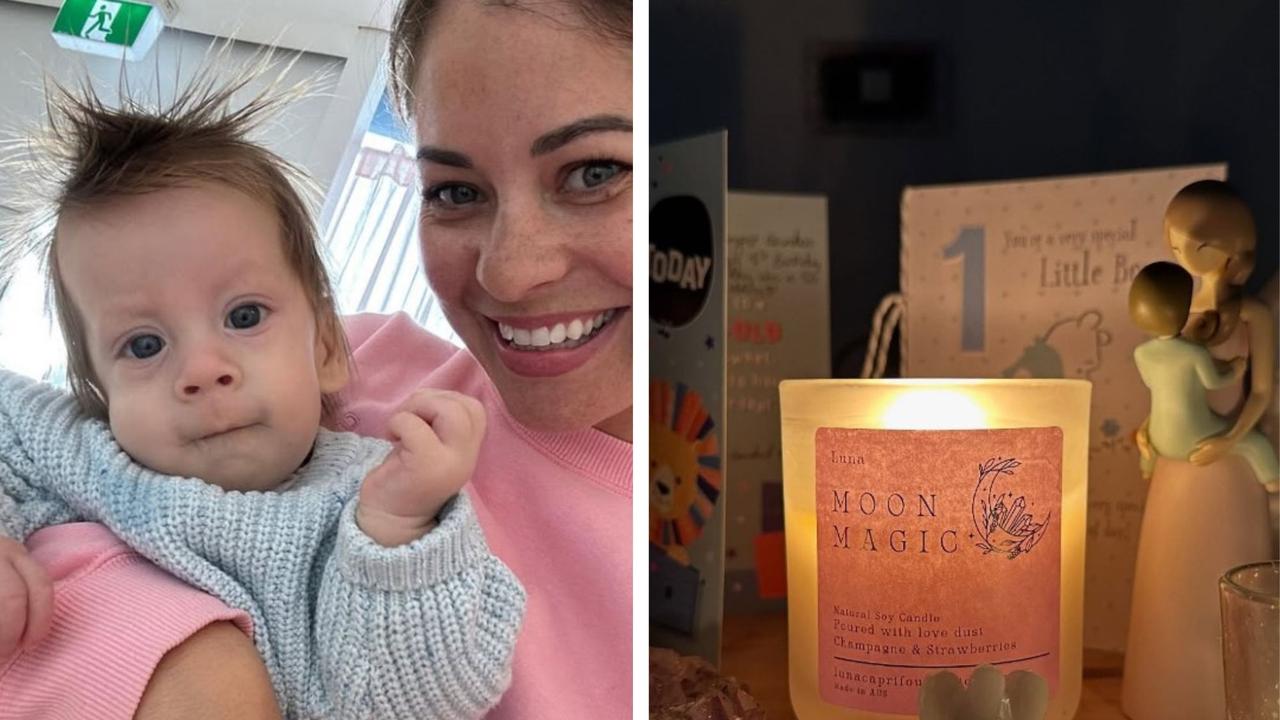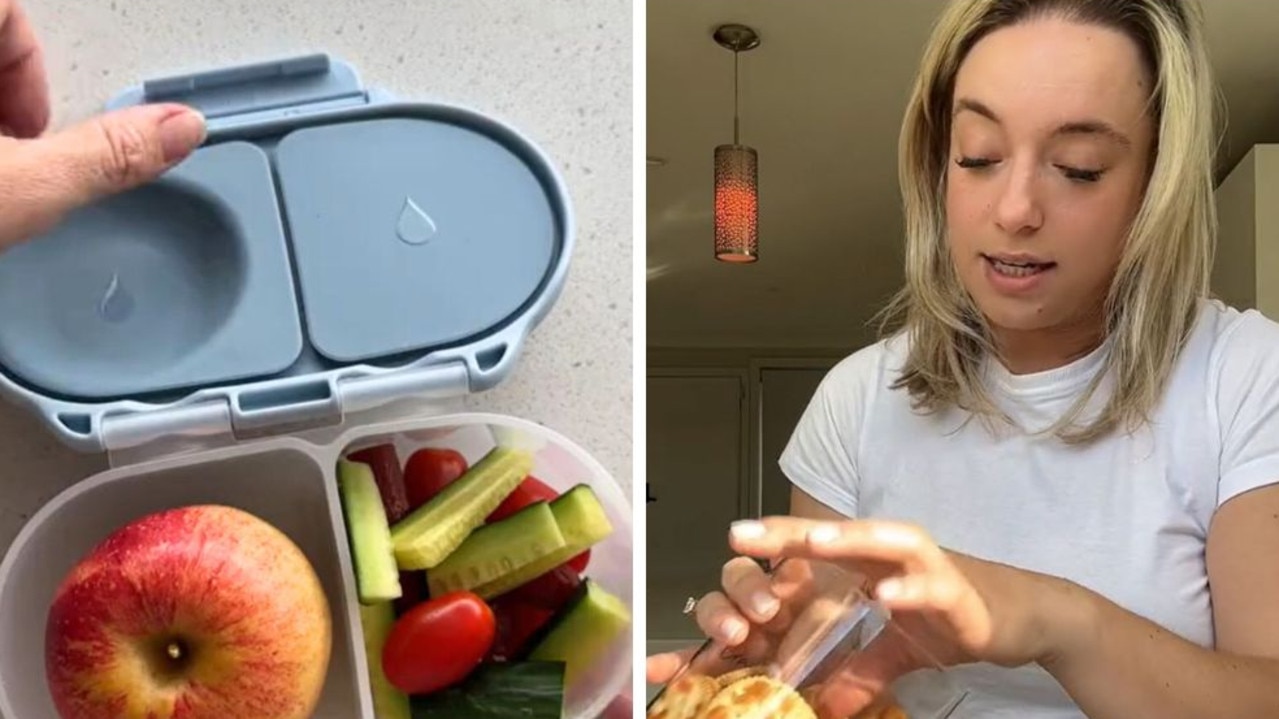Fighting for Isabelle: The battle for transgender kids to get access to cross-sex hormones
ISABELLE is like any other 12-year-old girl. She likes to sing and dance, and fights with her sister over Monster High dolls. All she wants is to stay that way.
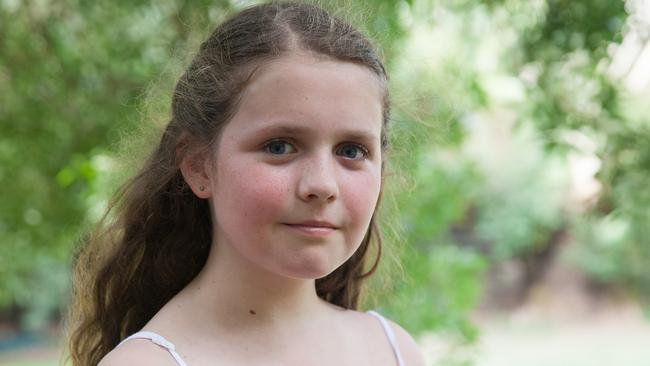
TWO days ago Naomi, Andrew and their children Isabelle, 12, and Hattie, 9, piled into the family car to drive from their home in the small rural town of Taggerty, about 100km northeast of Melbourne, to Canberra.
This is no ordinary road trip. Along with numerous other children, parents, a legal expert and a doctor specialising in adolescent medicine, the Langley-McNamara family is coming to the nation’s capital on an urgent mission. This morning they are meeting with members of Parliament from across the political spectrum to tell their stories.
Naomi sees this as a way to keep her eldest daughter from suicide and self-harm.
“There’s been really dark times. Isabelle has said to us that if she can’t be who she truly is and live as a girl, then she’d rather not live at all. That’s what we’re dealing with here and that’s the level of distress,” Naomi says.
“This is a scary thing for me as a mother, and I will move mountains to make sure she is safe.”
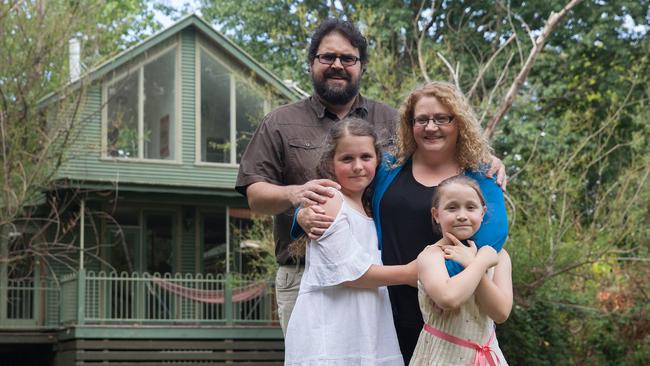
Like 44,000 other Australian children, Isabelle is transgender. Biologically, she was born as a male but identifies as a girl.
In order to stop Isabelle going through male puberty, she will require so-called stage two cross-sex hormone treatment within the next two to four years.
In countries where this stage-two treatment is available, Australia is believed to be the only nation in the world where transgender children are required to go through the Family Court to get access to it.
Transgender advocates claim that taking a case like this through the court system can cost up to $30,000 and take many months. They also cite the emotional distress this places on the child and their family.
However, these factors vary greatly, depending on the State or Territory and each child’s personal situation.
Today, Isabelle plans to tell the politicians she meets why they should change the law for children like her.
“I am a girl, I was born a girl, not a boy who wants to be a girl. Unfortunately for me, I was cursed with some physical characteristics that don’t match my identity as a girl,” Isabelle explains.
“This has been very hard and very stressful. I have tried to hurt myself and have questioned whether I even want to be here.
“I am scared all the time about going through male puberty and not getting the right treatment that will help me have the body that I should.
“I don’t just want to access stage two treatment, I need to [have it] … so I can live my life and be happy.”
When I ask what would happen if she couldn’t access the treatment, the answer is heart-stopping. She turns her blue eyes and round cheeks away and almost inaudibly says: “I wouldn’t feel anything because I would be dead.”
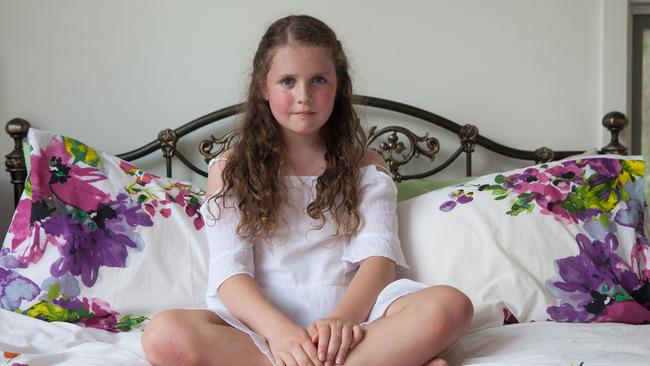
Backing up his daughter, Andrew questions why children and their families must be put through this “pointless” legal process.
“When you’ve got the child, her family, and the doctors all in agreement about what’s going on, why does the court need to be involved?”
One of the other people visiting Parliament House in Canberra today is Michelle Telfer, from the Royal Children’s Hospital in Melbourne. She is a leading paediatrician in the field of gender dysphoria — a medical term that describes the distress that someone feels when their physical body isn’t consistent with the gender that person identifies as.
Since 2012, Dr Telfer has treated more than 200 children with gender dysphoria. And just like Isabelle and her parents, she believes that there is an urgent need to change the law.
Dr Telfer says because of “social change, and also because we have medical treatments that we know are safe and effective” this has led to “more and more young people who want treatment and need treatment”.
“The court process is currently standing in the way of a number of those young people actually accessing that treatment, and without access to treatment we know that the self-harm and suicide risks are much higher,” she says.
Naomi concurs with Dr Telfer, explaining that being a transgender child is already “a hard journey”.
“When you fully appreciate that this treatment is not a choice but a life saving necessity, the current requirement to go through Family Court for approval feels punitive and unjust,” she says.
While Dr Telfer acknowledges there is some community concern about transgender children taking cross-sex hormones, she points to the evidence.
Dr Telfer explains that the science behind administering cross-sex hormones for transgender children is strong. “For those who transition after puberty, which is what we’re doing, less than one per cent … actually regret going through that medical transition.”
Most transgender children, Dr Telfer says, are clear from “a young age that their gender identity is different to their biological sex”.
“It is a big step to take medication to change your body, but when a child has been living in a role from the very, very beginning, it doesn’t feel like a decision, it feels like a progression,” Dr Telfer says.
“It’s only really the young person who can know how it feels for them, and I think we need to trust that young person.”
For Isabelle’s part, she is adamant that she knows who she is and can make the correct choices about her body.
“I think some people are worried that a child or young person couldn’t know that they are transgender,” Isabelle says.
“I find it hard to understand why people think it is any different. I have always known I am a girl, just like you have always known who you are.”
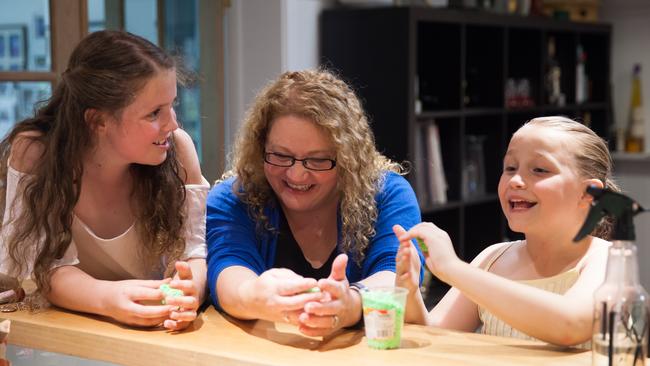
Naomi weighs in on this point, explaining that Isabelle is self-possessed and has thought long and hard about all the issues relating to her future, including grieving for her fertility.
“Accessing stage two treatment is not a course of action any parent, or any young person does on a whim,” Naomi says.
“We are fully aware of the consequences of this treatment and we are painfully aware of the consequences for Isabelle if she does not have access in a timely manner.”
The challenges Isabelle faces in the next few years loom large over the heads of the Langley-McNamara family. In contrast, everything else about their life is blissfully ordinary.
While we chat the family’s “pretty but not very bright” dog, Kevin, can be heard barking in the background at a possum.
Naomi and Andrew both have busy jobs, although Andrew works part-time and acts as the family taxi, ferrying his daughters around to after-school activities.
Hattie is crazy about acrobatics and Isabelle about singing and reading.
The girls say they are “more or less” friends, although like any sisters, they sometimes fight over toys — especially their Monster High dolls.
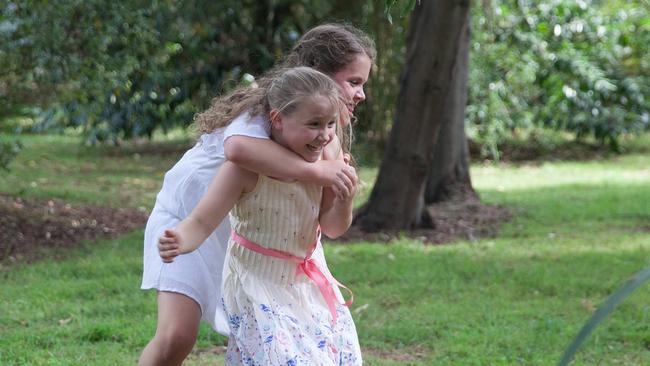
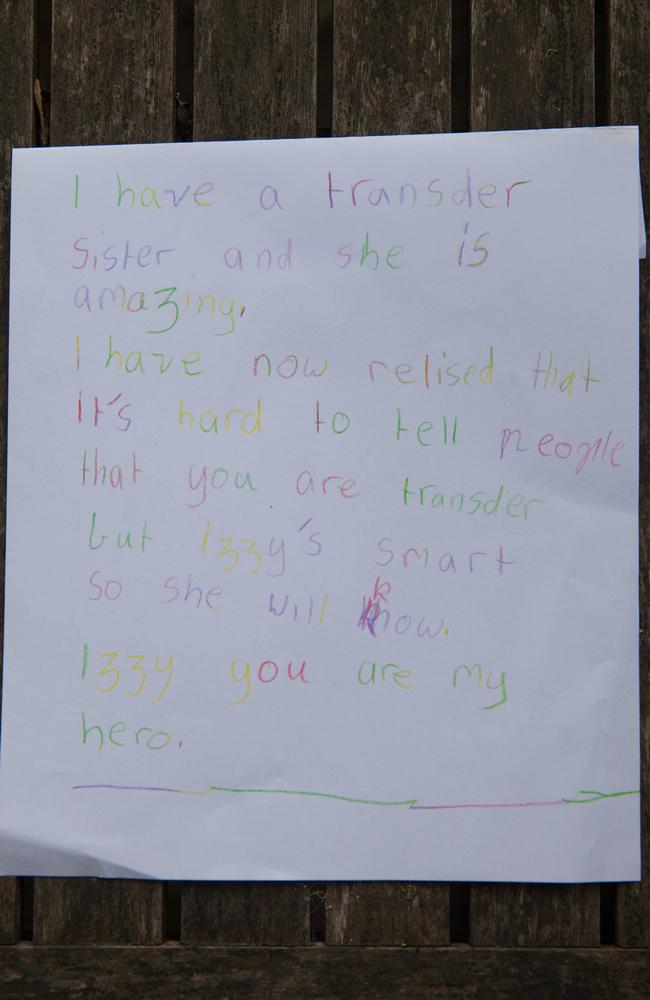
With deep love, Naomi reflects that this journey has taught her and Andrew a great deal.
“It has opened our hearts and minds in a way I had never thought possible.
“It has shown us what an incredible person our Isabelle is [and] we are so very proud of her,” she says.
So will the Canberra visit achieve anything?
Attempting to change the Commonwealth Family Law Act so that transgender children can access cross-sex hormones without going to court is never going to be an easy task.
However, Dr Telfer has a slew of meetings with our political leaders lined up today and she remains hopeful.
“After speaking to the Attorney General’s [George Brandis’] office and members of the Labor Party and the Greens, I do feel that we have tri-partisan support.”
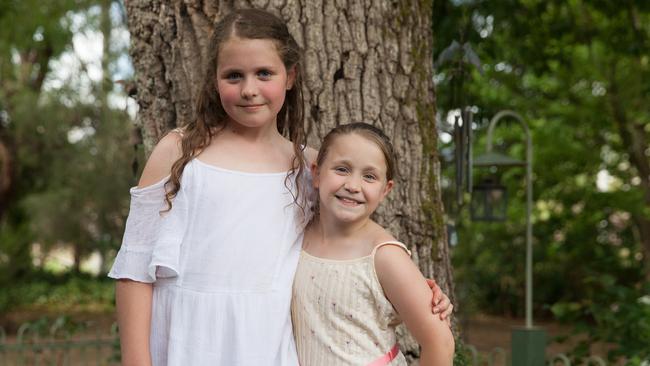
If you or someone close to you needs support, please call:
Lifeline on: 13 11 14 or www.lifeline.org.au
Kids Helpline: 1800 55 1800 or kidshelpline.com.au
Headspace: 1800 650 890 or headspace.org.au
Ginger Gorman is an award-winning print and radio journalist, and a 2006 World Press Institute Fellow. Follow her on twitter: @GingerGorman


